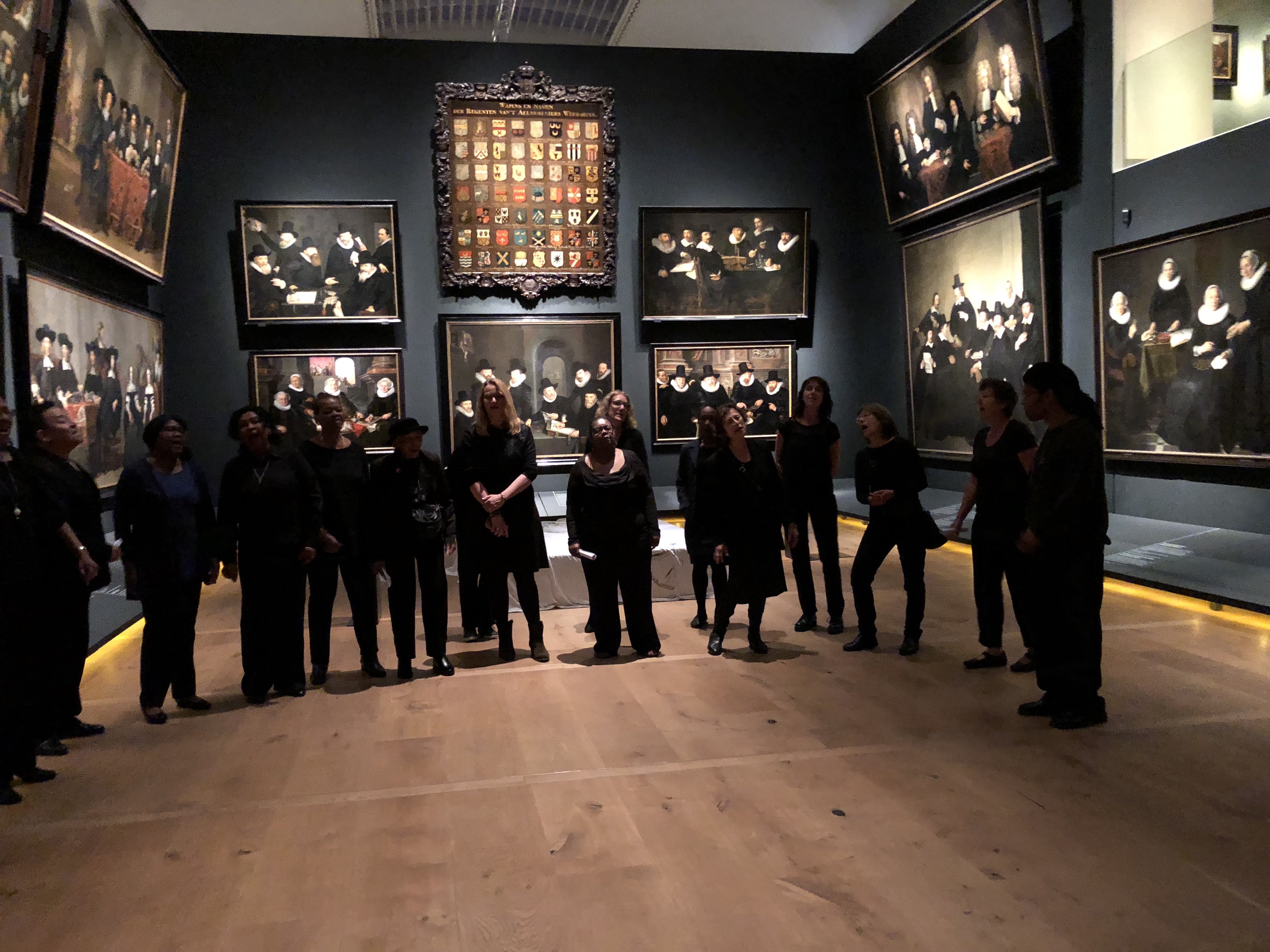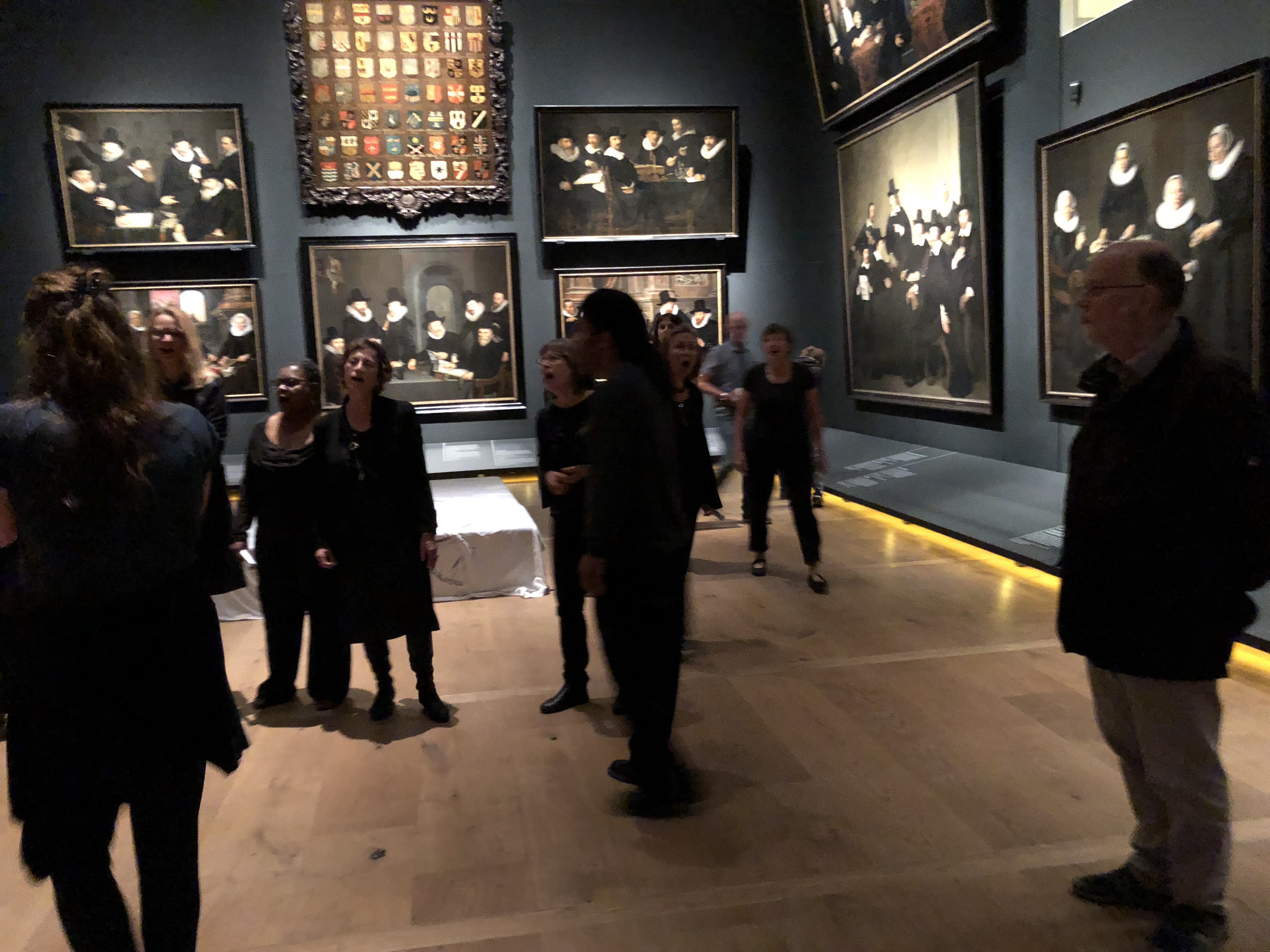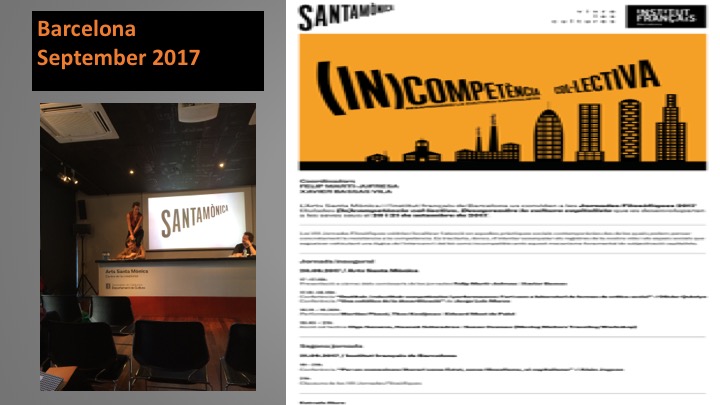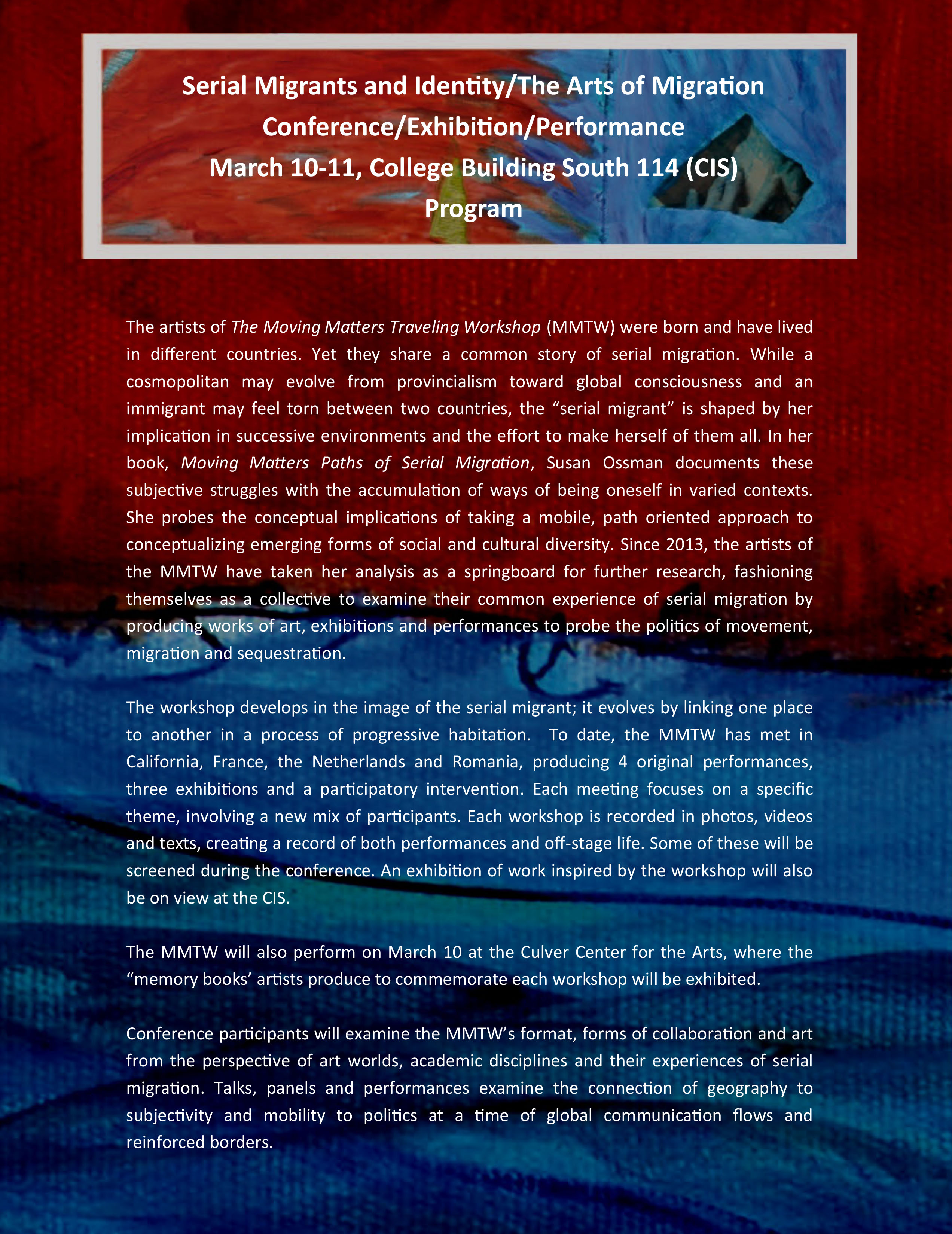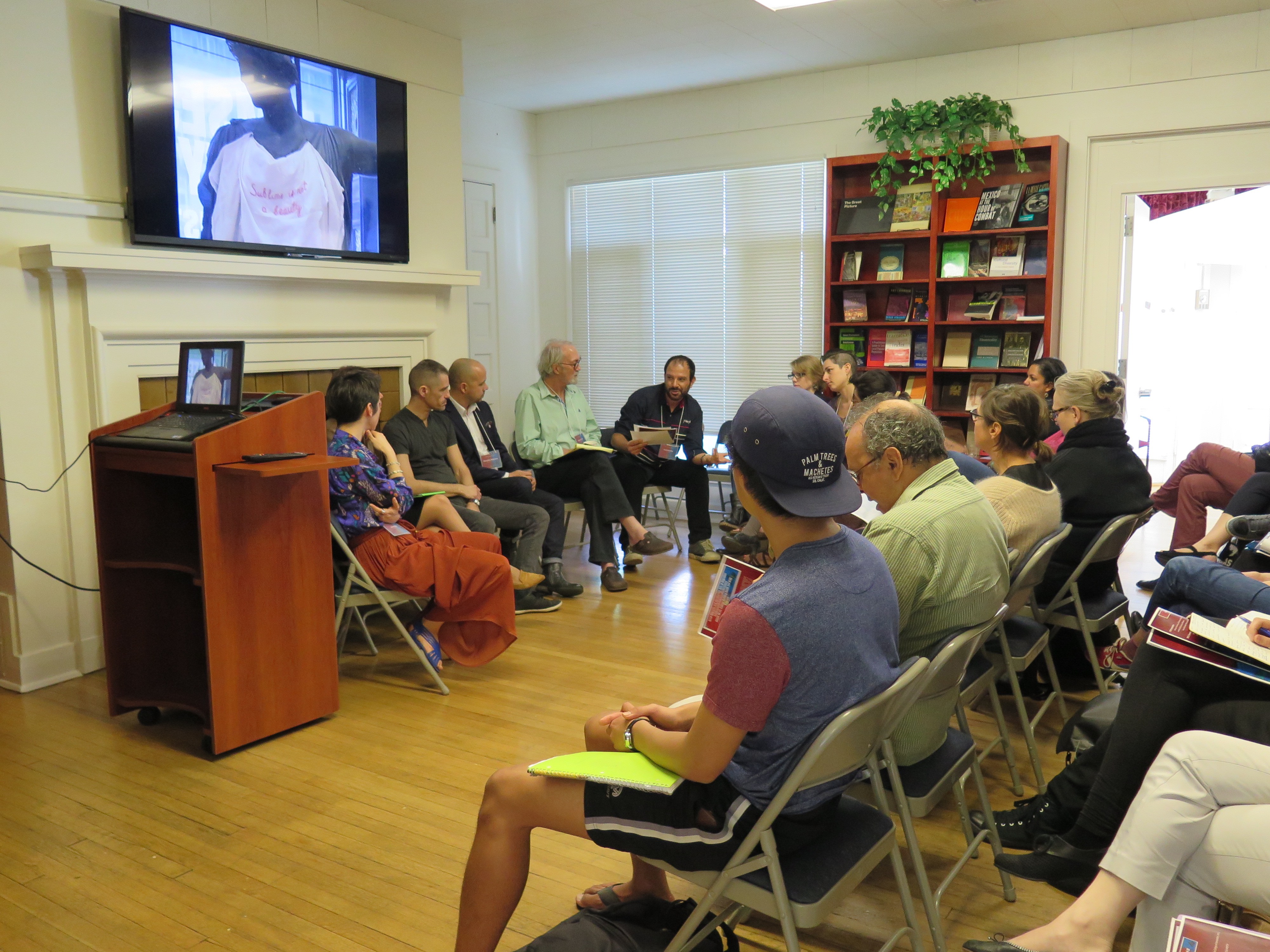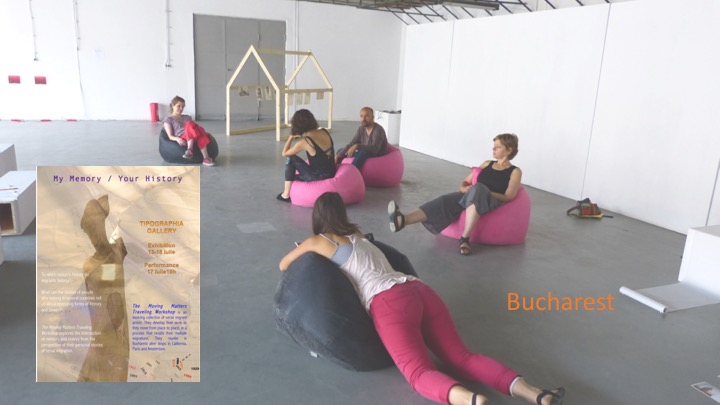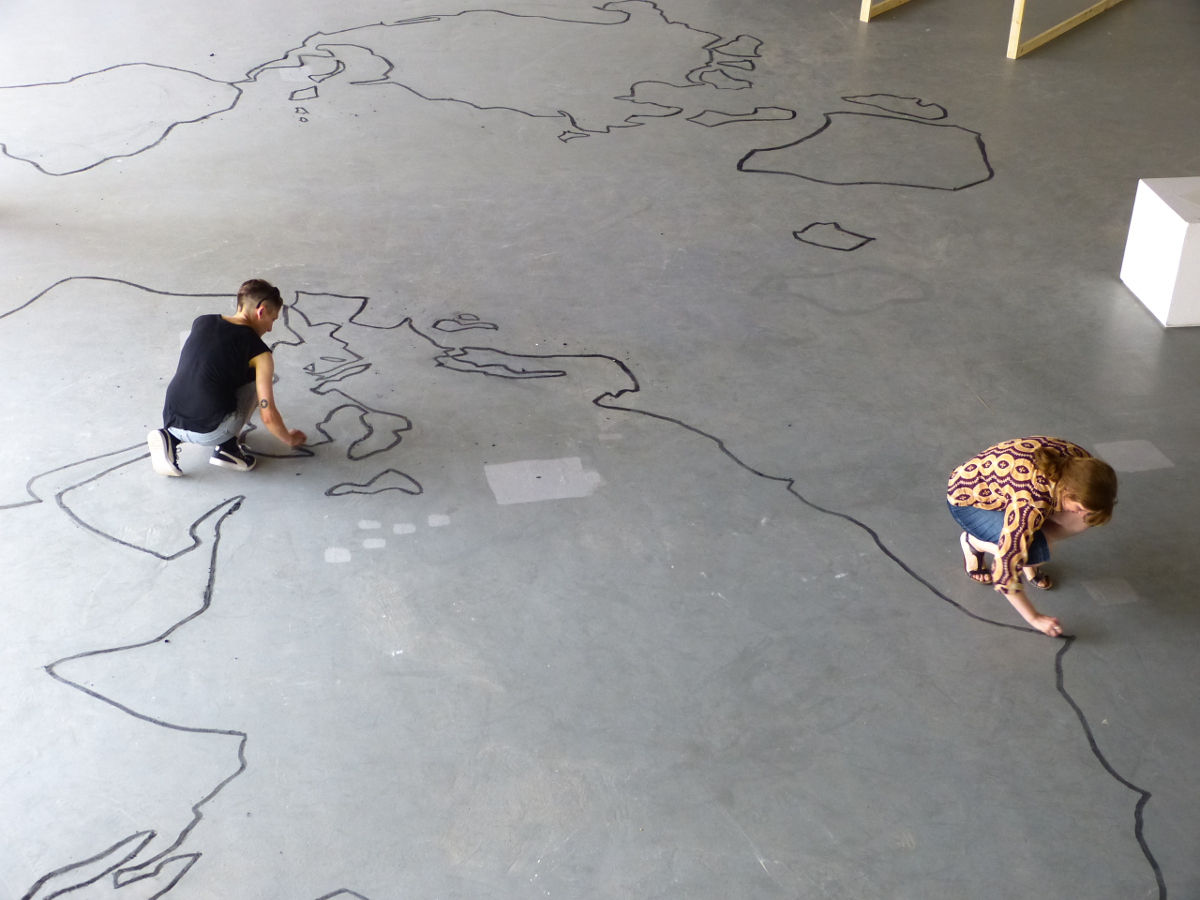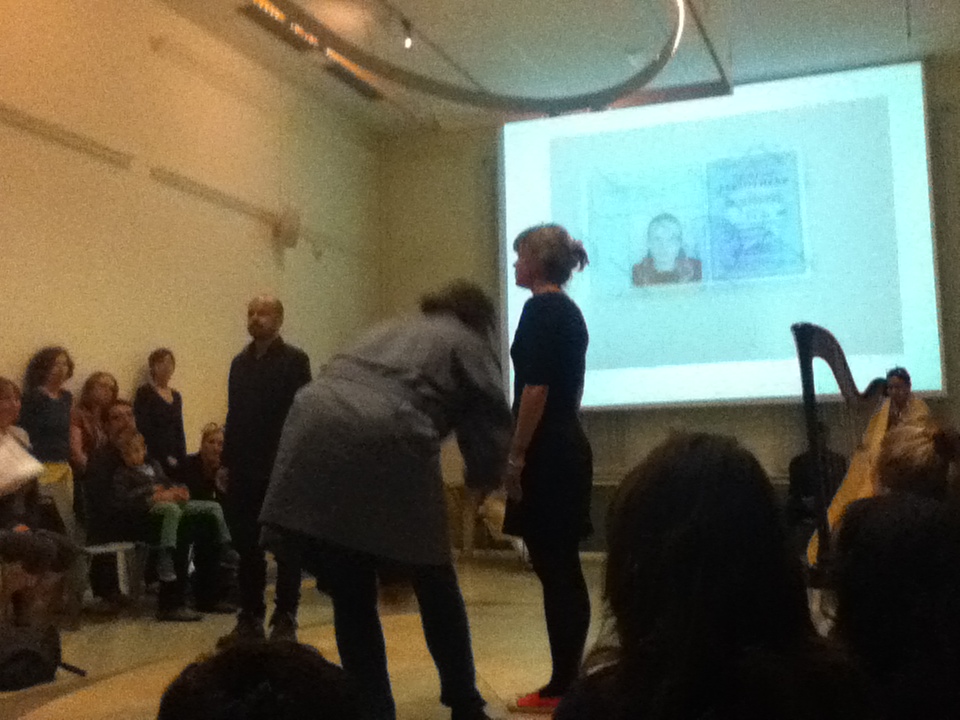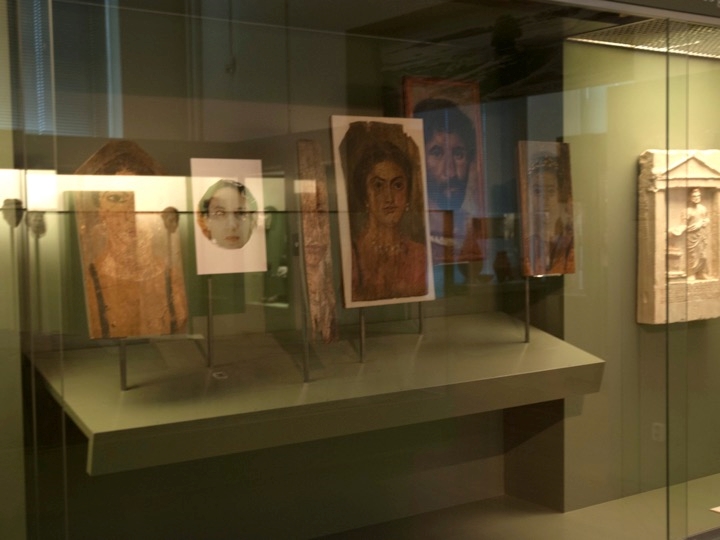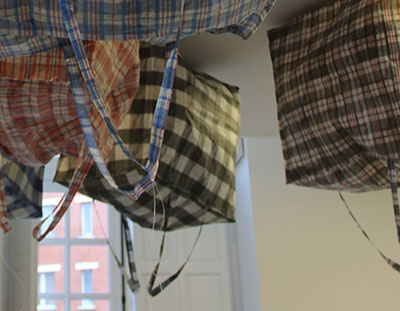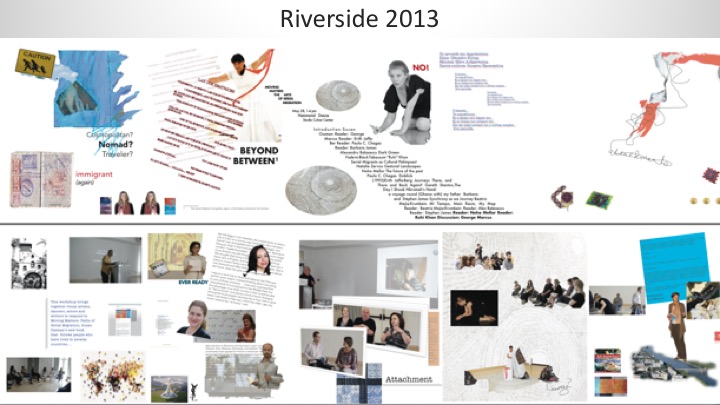TRAVERSE HERITAGE: Voice, Body, Movement
Hermitage Museum Amsterdam, Portrait Gallery of the Golden Age
17 May 2018
View a short clip of the performances: IMG_5760
The MMTW joined the Amsteram based DoreMimi and Het Sannas choirs to present a reflection in motion on subjectivity, identity and the colonial legacy in Amsterdam and consider how we can “neighbour” in today’s political climates. The focus of our production wias be strongly on postcoloniality, the Global South and the relationship between ‘traditional’ and ‘high’ arts in the post-colonial, neo-imperialist age of heightened mobility. The collections of Dutch museums abound in objects, images and texts that bear witness to Dutch colonialism and its aftermath, up to the present. Yet, they are categorically separated from western ‘professional’ arts and culture and reside in separate museum collections. Some are buried in storage. How might these things be given voice? What movements of diverse subjected, subaltern, enslaved bodies do they intimate? What figures as images, or figures of thought are silenced when they migrate to Amsterdam, while others achieve new prominence or give birth to new art forms? These are some of the questions we will addressed in our workshop from 14-17 May, leading to the performance on 17 May.
March 2018: Made in Displacement
Chicago, Council of European Studies Conference
 Natalie Zervou, Olga Sezneva and Susan Ossman developed a version of the the participatory “Mapquest” project and performed a panel/performance at the Council of European Studies conference 28-30 March.
Natalie Zervou, Olga Sezneva and Susan Ossman developed a version of the the participatory “Mapquest” project and performed a panel/performance at the Council of European Studies conference 28-30 March.
(IN)COMPETÈNCIA COL·LECTIVA Desaprendre la cultura capitalista/
COLLECTIVE (UN)COMPETENCE Unlearning capitalist culture
September 2017
During the eighth Jornades Filosòfiques of Barcelona, we explore contemporary social practices that can help us to resist capitalist competence/competition. We examine practices and spaces that are incompatible with the competition mechanism, essential to capitalist subjectivation, and that take the common good as their measure.
In catalan, “competència” is at the same time one of the fundamental concepts of liberalism (competition) and the name of the epistemological condition required and produced by the set of procedures that organize the functioning of the globalized institutions of knowledge (being competent or incompetent). The convergence of the scientific sense and the economic sense of “competència” translates into a complex system of formulation and calculation of the products made within those institutional spaces. The logic of private property is concretely produced in the field of knowledge through this process of objectification. The interpenetration of knowledge and capitalism today is the result. The situation this pairing defines can be extrapolated to our productive system in general: the attempt to build criteria for recognition and universal exchange forms has become the way in which the logic of merchandise and private property has unfolded globally.
WALLS/GRENZEN/MAUERN, Berlin
June 2017: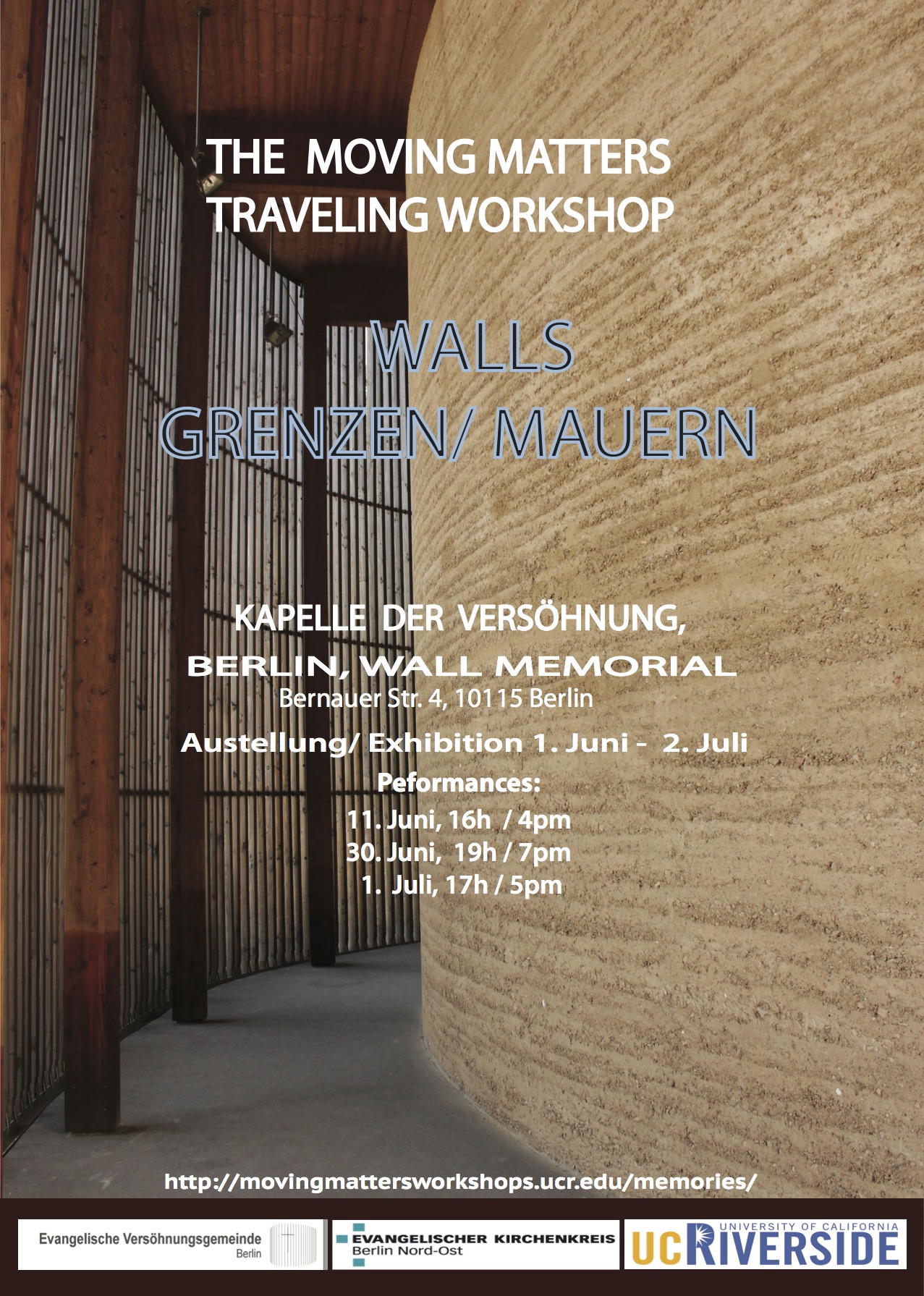
For many years, the Wall defined Berlin. In 1989 the Berlin Wall came down, seemingly heralding a new era when people would no longer be divided by walls and the ideologies that uphold them. Today, however, around the world new walls are being erected and extended: between Mexico and the USA, Israel and Palestine, around “Fortress Europe,” and elsewhere. Walls symbolize division, but they also can provide refuge. This is likewise epitomized by Berlin. The city has offered walls to thousands of people fleeing wars in the Middle East. Hence, walls may also offer protection, privacy and a sense of home, and not only signal borders or divisions.
In Berlin, the artists of The Moving Matters Traveling Workshop will work in and around the Kapelle der Versöhnung (Chapel of Reconciliation) and the Stephanuskirche in Wedding to explore the multiple meanings of walls by developing an exhibition, performance and public interventions. The Chapel is located on the former border strip where the Church of Reconciliation once stood. The church was on the demarcation line and thus was not used after 1961. In 1985 East German government bombed it to enable the extension of the border zone. The new chapel was dedicated in 2000. Volunteers from around the world came to build the rammed-earth wall that delineates its inner sanctuary and which incorporates the ruins of the former church. Coming to the Chapel of Reconciliation as “serial migrants” the MMTW artists bring their own experiences of border crossings and recollections of the walls of their different homes to this project. Even as others perceived them as immigrants, refugees, love migrants or locals, they define themselves as serial migrants to focus on their common path of settling in multiple countries. They draw on this multi-faceted individual experience and the collective dynamic generated by the MMTW project since 2013 to contemplate the political and personal meanings of walls in their myriad material and imaginative dimensions.
Curated by Susan Ossman and Lisa Strehman
Serial Migrants and Identity / The Arts of Migration
Conference. Performance. Exhibition
Center for Ideas and Society/ Culver Center for the Arts,
Riverside, California, March 2016
BUCHAREST
Gallerie Typografia, July 2015
AMSTERDAM
Allard Pierson Museum, June 2014
CLICHY, France
Pavillon Vendome, November 2013
RIVERSIDE, CA
Culver Center for the Arts, 2013

